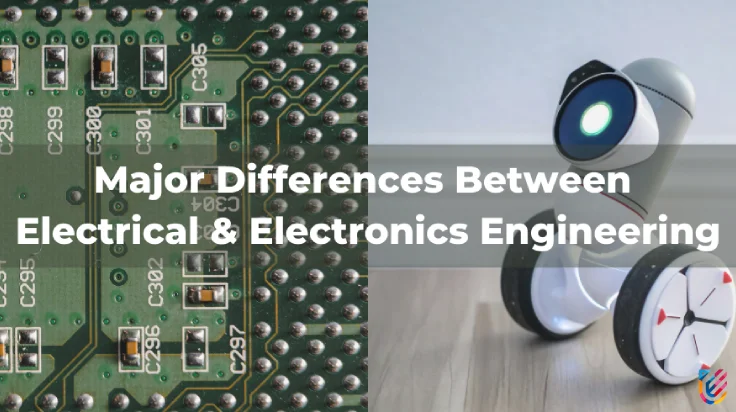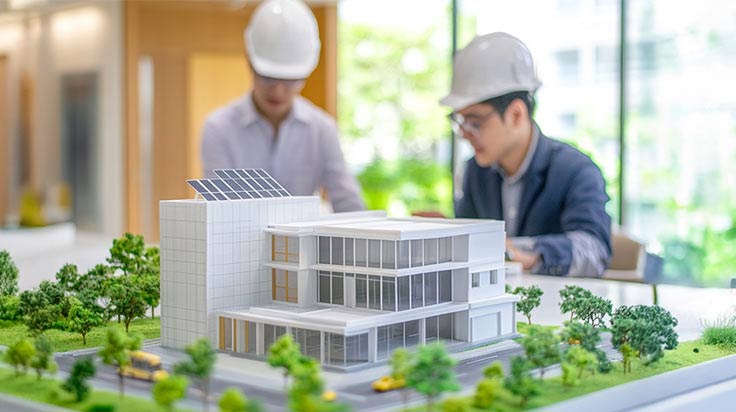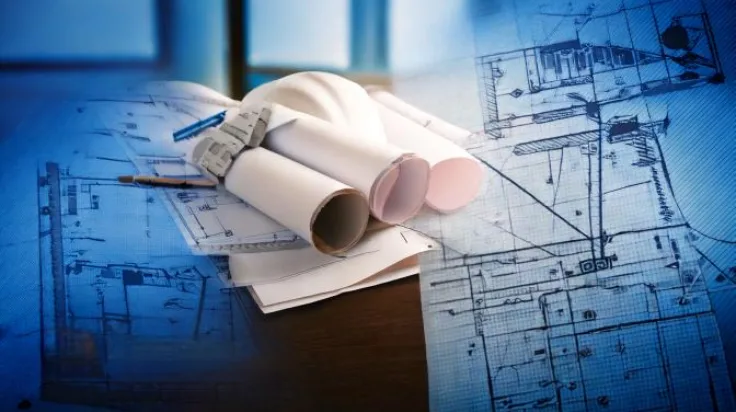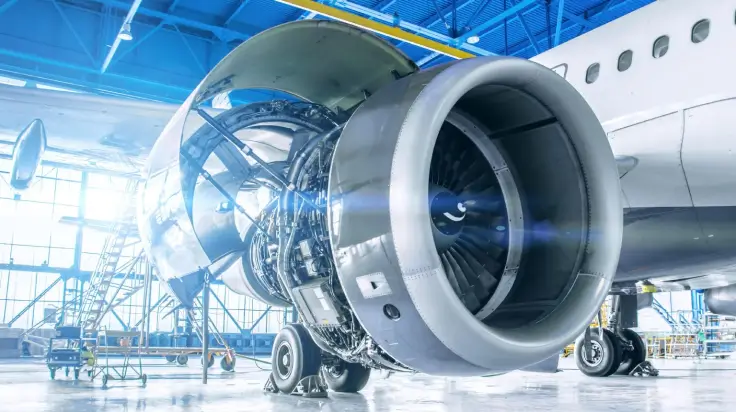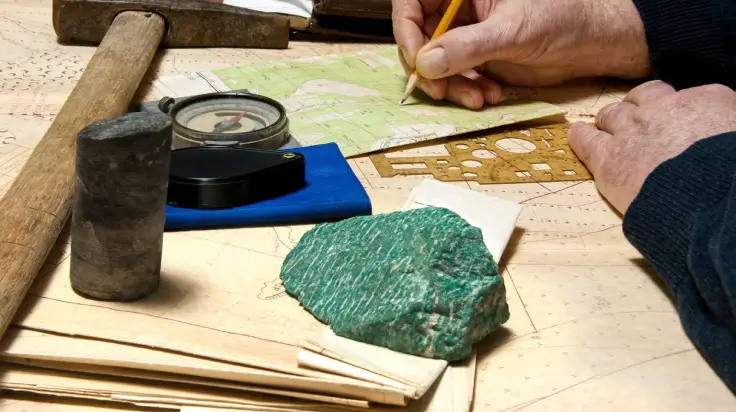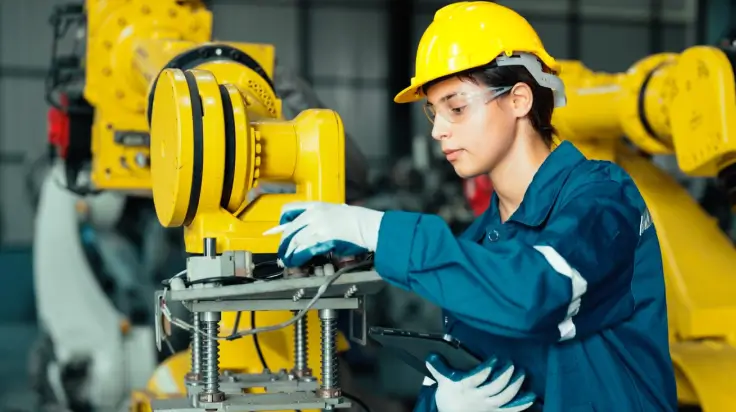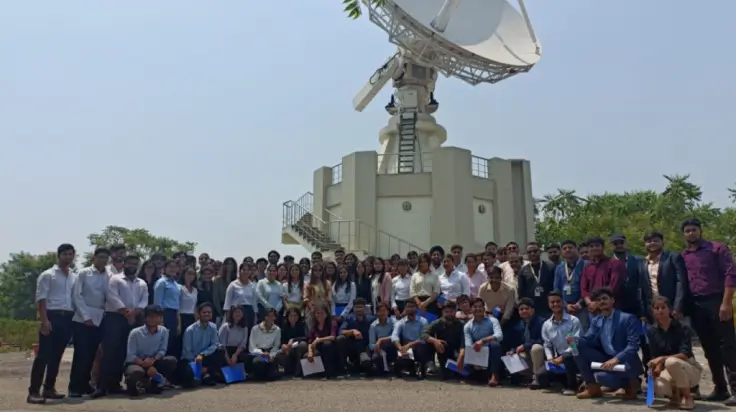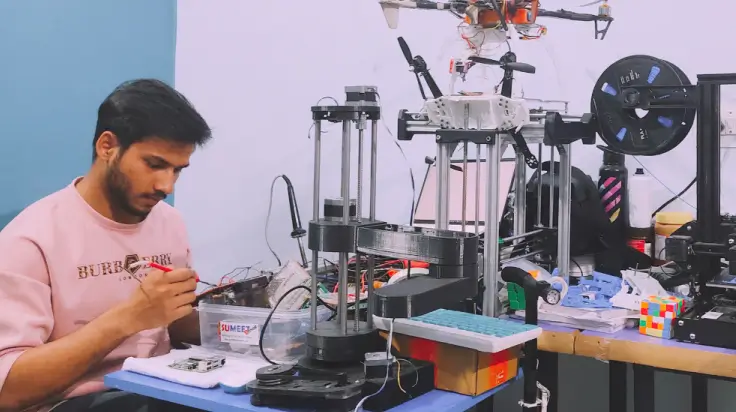Innovations Shaping the Future of Civil Engineering
- UPES Editorial Team
- Published 05/07/2024

Are you the kind of person who loves to build and create? If so, the world of civil engineering is where your creativity and innovation can thrive. In this article, we will take you on a journey through the cutting-edge innovations that are revolutionising the field, all within the framework of our B.Tech. Civil Engineering course. So, buckle up and get ready for a thrilling ride into the future of civil engineering!
Civil engineering program not only provides you with knowledge but also assists you in getting placement opportunities. The program specialises in Transportation Engineering/Environmental Engineering/Construction Management. It is a four-year program including 8 semesters. Additionally, there is a unique dual-degree opportunity that enables students to spend two years at UPES and two years abroad at renowned universities such as the University of Exeter, the University of Aberdeen UK, and Indiana University Purdue University Indianapolis (IUPUI).
Smart Cities
As our world becomes increasingly interconnected, the concept of smart cities is at the forefront of civil engineering innovations. Our B.Tech. Civil Engineering course is designed to equip students with the skills to design, implement, and manage smart infrastructure. From intelligent transportation systems to energy-efficient buildings, students explore the integration of technology to enhance urban living.
Sustainable Solutions for Tomorrow
The future of civil engineering is undeniably green. Sustainability is no longer an option; it's a necessity. Our civil engineering program places a strong emphasis on eco-friendly practices, teaching students how to develop infrastructure that minimises environmental impact. Concepts like green building materials, energy-efficient designs, and waste reduction strategies are integral parts of the curriculum, preparing our students to be stewards of a greener tomorrow.
Bridging the Gap with Advanced Materials
In the world of civil engineering, innovation often comes in the form of materials that redefine the capabilities of structures. Our B.Tech. Civil Engineering program delves into the latest advancements in construction materials, such as self-healing concrete and ultra-high-performance concrete. These materials not only enhance the durability of structures but also open doors to new possibilities in design and construction.
Augmented Reality (AR) and Virtual Reality (VR)
Imagine being able to step into a building before it's even constructed or inspect a bridge's structural integrity without leaving the classroom. With AR and VR technologies, these scenarios are now a reality in civil engineering. Our B.Tech. Civil Engineering course integrates these immersive technologies, allowing students to visualise and interact with designs in three dimensions, providing a hands-on experience that goes beyond traditional learning methods.
Robotics in Construction: The Rise of Automated Builders
The construction site of the future is in the realm of automation and robotics. Our curriculum introduces students to the fascinating world of construction robots that can perform tasks ranging from bricklaying to 3D printing structures. By gaining hands-on experience with these cutting-edge technologies, our students are well-prepared to navigate the evolving landscape of construction practices.
Geospatial Technology: Precision in Planning
Precision is paramount in civil engineering, and geospatial technology has emerged as a game-changer. Our B.Tech. Civil Engineering program incorporates the use of Geographic Information System (GIS) and Global Positioning System (GPS) technologies to enhance surveying, mapping, and urban planning. Students learn to harness the power of geospatial data for more accurate and efficient project planning and execution.
Resilient Infrastructure: Adapting to the Unpredictable
Climate change brings new challenges to civil engineers, demanding resilient infrastructure that can withstand extreme weather events. Our civil engineering program addresses this need by exploring innovative solutions such as flood-resistant designs, adaptable urban planning, and sustainable drainage systems. Students are equipped with the knowledge to design infrastructure that can withstand the challenges of a changing climate.
Conclusion
As we navigate the future, the field of civil engineering is poised for unprecedented growth and innovation. Our B.Tech. Civil Engineering course of UPES School of Advanced Engineering is not just about building structures; it's about shaping future leaders who will redefine the landscape of our cities and communities. From smart cities to sustainable solutions, advanced materials to cutting-edge technologies, our program prepares students to be at the forefront of the ever-evolving world of civil engineering. Join us on this exciting journey and be a part of the innovation that shapes the future!
UPES Editorial Team
Written by the UPES Editorial Team
UPES Admission Enquiry
Subscribe to UPES Blogs
Join our community for exclusive stories, insights, and updates
By clicking the "Subscribe" button, I agree and accept the privacy policy of UPES.











